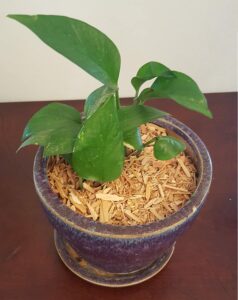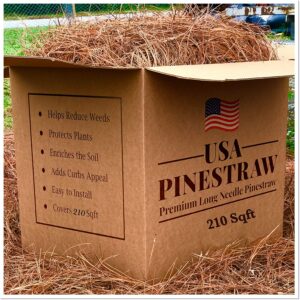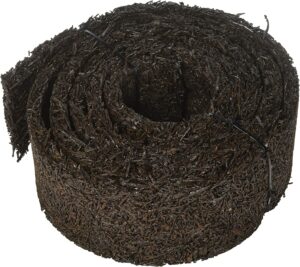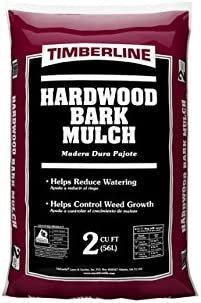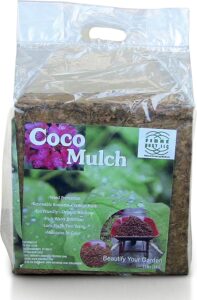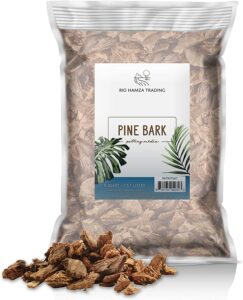What Are the Best Mulches for Trees? 6 Great Options
-

- Last updated:
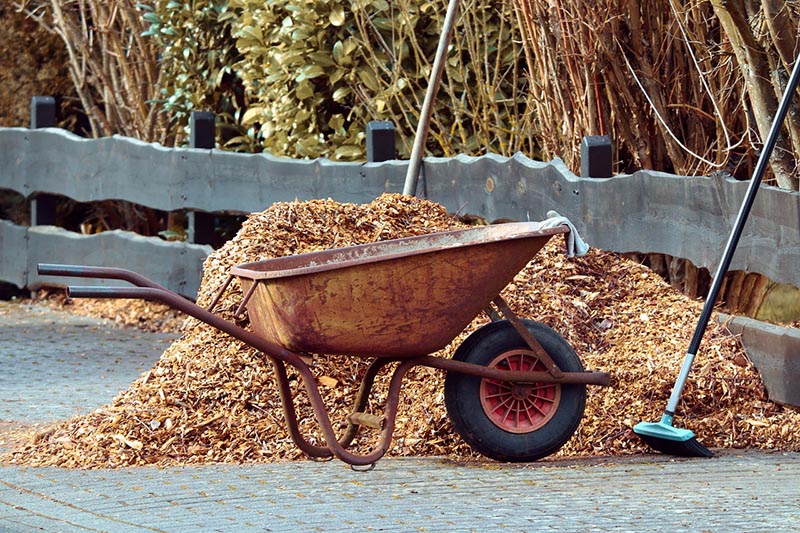
When you’re looking at different mulch options for your tree, you’ll see lots of choices out there. While they’ll all provide a decent look for your landscaping, some provide far more benefits than others.
But how do you know which mulch is best for trees and which one should you go with? We’ve highlighted six options for you to consider, and we broke down the advantages and disadvantages of each one. That way, you can make an informed decision about which mulch option is best for the trees on your property and have them looking great in no time!
The 6 Great Mulch Options for Trees
1. Natural Cedar Chips
| Cost | Low/Moderate |
| Longevity | Moderate |
If you want a mulch with tons of benefits and a great final appearance, natural cedar chips are as good as it gets. Cedar mulch provides plenty of insulating properties and helps prevent weed growth, but the benefits go beyond that. The mulch helps protect the tree’s roots and helps with moisture retention too.
Natural cedar chips aren’t the lowest-cost option out there, but they’re not the most expensive either. That’s good because you will need to replace it each year, but that’s part of the appeal since as the mulch breaks down, it provides the soil with the nutrients the tree needs.
- Great final appearance
- They decompose over time
- Great insulating properties
- Helps prevent weed growth
- You need to replace it each year
2. Pine Straw
| Cost | Low |
| Longevity | Short |
Pine straw is one of the most affordable mulch options you have for trees, and that alone makes it worth considering. It also has great insulating properties, and it is one of the lighter and easier mulch options to apply.
Compared to other mulch options, it doesn’t last quite as long, but you should be able to get a full year out of it. The other drawback of pine straw is that if you’re walking on it a lot, it doesn’t do quite as well at preventing soil compaction compared to other mulch options.
Still, the reason most people don’t go with pine straw is its appearance. But if you like the way it looks, it is an effective and affordable mulch option for your trees!
- Very affordable option
- Great insulating properties
- Lightweight and easy to apply
- It might not last the full year
- Doesn’t do a good job preventing soil compaction
3. Rubberized Garden Mulch
| Cost | High |
| Longevity | High |
It’s easy to see the appeal of rubberized garden mulch. While other materials fade over time, once you put a rubberized garden mulch down, you don’t need to worry about replacing or maintaining it.
You get a great appearance day after day and year after year without fading. But its longevity is also one of the reasons it is not quite as effective compared to the other options we highlighted here. Rubberized garden mulch doesn’t decompose, so it’s not nourishing the soil the same way other mulches do.
They do a great job preventing weed growth, protecting the roots, and insulating the soil, but they’re simply not as beneficial as organic options.
- Lasts for years
- Helps prevent weed growth
- Helps protect the roots
- Insulates the soil
- Doesn’t decompose
- Not as good as organic mulch
4. Classic Hardwood Mulch
| Cost | Moderate |
| Longevity | Moderate |
If you head out to a local home improvement store like Lowes or Home Depot, most of the mulch you’ll find is hardwood mulch. Hardwood mulch is a good choice, but it can be a little bit more expensive than other mulch types.
But the reason it’s so popular is that there are multiple color options you can pick from, allowing you to customize the final appearance around the tree. They’re also effective, helping prevent weed growth and have outstanding insulating features.
You do need to replace this mulch each year as the color fades and it decomposes, though, so ensure you take that into consideration when picking one out.
- Decomposes over time
- Great insulating properties
- Helps prevent weed growth
- Different color options are available
- Slightly more expensive
- You need to reapply it each year
5. Coconut Husk
| Cost | High |
| Longevity | Moderate |
Coconut husk is a unique, if more expensive, option you have to mulch around your trees with. Coconut husk provides a rich brown appearance with a reddish hue, and it does it without any colors or additives. It’s completely organic, and that’s a big part of the appeal.
Just like other organic mulch materials, coconut husk breaks down over time, and the nutrients in the husk nourish the tree as it continues to grow. It also insulates and protects the soil, and it does a pretty good job of keeping weeds away.
The only real downside is the price. If you have a lot of trees you want to mulch around, using coconut husk can quickly become an extremely expensive option.
- Decomposes over time
- Great insulating properties
- Helps prevent weed growth
- Organic option
- More expensive option
- You need to reapply it each year
6. Pine Bark Mulch
| Cost | Low/moderate |
| Longevity | Moderate |
Pine bark mulch is extremely similar to cedar mulch, but because it uses a different type of wood, it has a different final appearance. Functionally, it insulates the soil, helps prevent weed growth, and helps protect the roots.
There are also different color options available, and over time, the mulch will break down and nourish the soil. You will need to replace it each year, but it’s not the most expensive mulch option out there. No matter how you look at it, pine bark mulch is a great choice.
- Decomposes over time
- Great insulating properties
- Helps prevent weed growth
- Different color options are available
- You need to reapply it each year
Organic vs. Inorganic Mulch Options
When you’re looking at the different mulch options out there, you can break it all down into two categories: organic and inorganic mulches.
Inorganic mulches consist of materials like rocks, stone, gravel, and rubber, and they don’t provide all the same benefits as organic mulch. It’s because of this that only one inorganic mulch made our list. The problem with inorganic mulch is that it doesn’t break down, so it’s not providing all the same nutrients to the soil that organic mulches provide.
Moreover, inorganic mulches don’t insulate as well as organic options, and they don’t always do as well at conserving moisture. The primary advantage of inorganic materials is that you don’t need to replace them, which saves you money each year.
But since they don’t provide all the same benefits you get with organic mulch, we recommend avoiding them if you can.
 Conclusion
Conclusion
With so many great mulch options out there for your tree, the last thing you want to do is skip the mulch entirely. Mulch provides tons of benefits for trees, and it’s one of the easiest things you can do to help them reach their full potential and stay healthy year after year.
So, go through the list again and find the perfect mulch for your tree and watch it thrive!
Featured Image Credit: Manfred Richter, Pixabay
Contents

